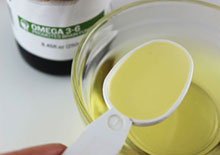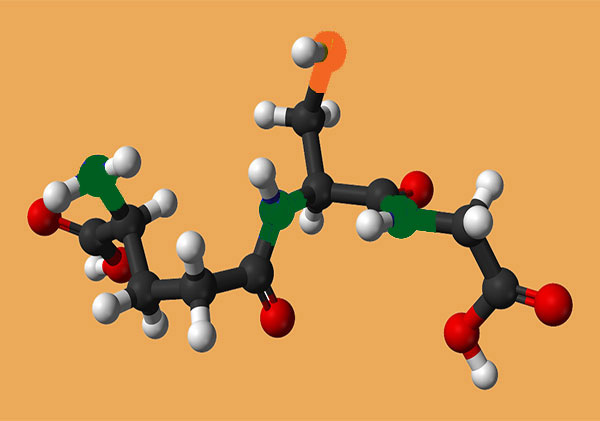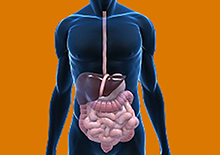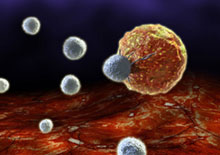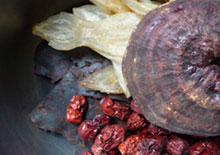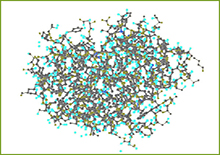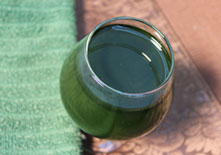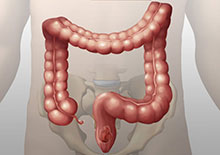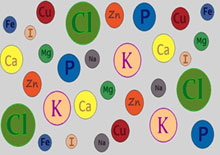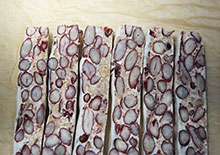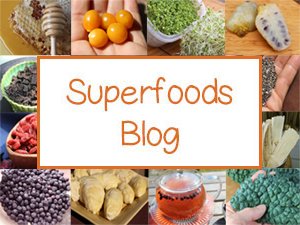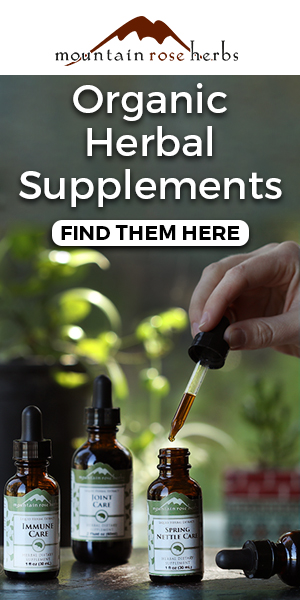Healthy Diet Tips, A Beginner's Guide to Feeling Your Best
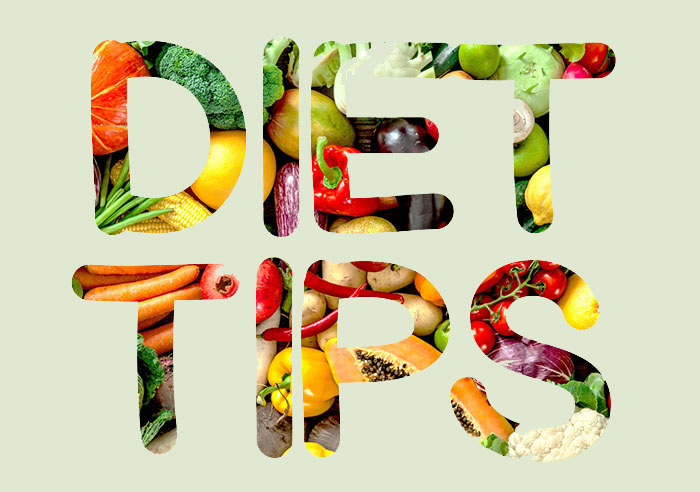
Want some healthy diet tips to get you started on the road to looking and most importantly feeling your best?
Most people in this modern-day and age are aware that dietary habits can play a significant role in the health, longevity and the quality of life we experience.
So, it would make sense that if any of these aspects are goals you wish to achieve, that attention or "intention" must be placed on dietary habits. (IE: The foods you eat most often, not occasionally.)
From our perspective, a healthy diet first begins by making healthier food choices that will assist you in sustaining long-term physical and mental vitality over the course of a lifetime, as oppose to getting caught up in "diet dogma" or short-term diet trends.
This goes along with incorporating health-promoting foods and drinks that you actually enjoy consuming on a regular basis, developing meal plans made with colorful fresh whole foods that satisfy the taste buds as well as all nutritional essentials.
Below are some basic healthy diet tips to help you get started. Preparing your own foods, learning how to prepare your own meals or hiring someone to prepare them is essential. If you are dependent on restaurants and prepacked foods, it is more challenging to maintain these basic steps.
Healthy Diet Tips: The Basics
- Stop Eating C.R.A.P.
- Whole Foods and Raw Plant-Based Options
- Replace Condiments, Oils and Sweeteners
- Eat Right for Your Body Type
- Plan Out Meals
- Blend Superfood Drinks
- Drink Fresh Green Juices
1) Stop Eating C.R.A.P.
Our basics of course begin with eliminating the C.R.A.P. from your diet. Sure, these foods can be consumed once in while but in our opinion their not something you want to take in on a frequent basis.
Carbonated Soft Drinks - High fructose (HFCS) and highly caffeinated varieties.
Refined Sugars and Salt - White cane sugar and table salt.
Artificial Foods - Chemical ingredients that you can't pronounce
Processed Foods and Fast Food - Convenience foods containing preservatives and transfats.
2) Whole Foods and Raw Plant-Based Options
Eat more whole foods with a portion coming from raw vegan options. We
prefer organic, non-GMO varities, garden grown or purchased fresh from a
local farmers market. This includes grains, legumes, tubers, nuts,
seeds, vegetables and fruits. We would also include on the list small
portions of quality pasteure-raised and finished animal meat, eggs and
dairy sources if you're not vegan or vegetarian.
Consuming vegetables in their raw state in fibrous salads or raw soups can be especially energizing for malnourished individuals.
3) Replace Condiments, Oils and Sweeteners
- Find healthier substitutions for condiments, make your own using quality ingredients
- Replace table salt with sea salt or pink salt
- Use extra-virgin olive oil or cook with heat stable fats like coconut oil
- Use alternative sweeteners over refined varieties
4) Eat Right for Your Body Type
We are not of the belief that "one diet" is appropriate for all people and what works for one person many not in fact be suitable for another. In Ayurveda, there are three different body type categories or "doshas" that people generally fall into: Vata, Pitta and Kapha. Each of these doshas have different needs as far as the optimum diet to which they are best suited.
5) Plan Out Meals
When you first get started introducing new foods to the diet, it may be helpful to select from the list of options and prepare meal plans according to the types of foods and dishes that sound exciting to you personally. This could involve looking up recipe ideas or coming up with different cultural seasonings that will add flavor and spice to your meals.
6) Blend Superfood Drinks
Some popular ones to start with are that are easy to use in drinks as most can be found as powders: moringa, acai berry, bee pollen, spirulina, goji, ashwagandha and maca.
7) Drink Fresh Green Juices
Adding in fresh green juices low in sugar content can be a great way to start of the morning or as a mid-day pick me up. They are a great way to get concentrated amounts of vitamins and minerals in an easy to digest format.
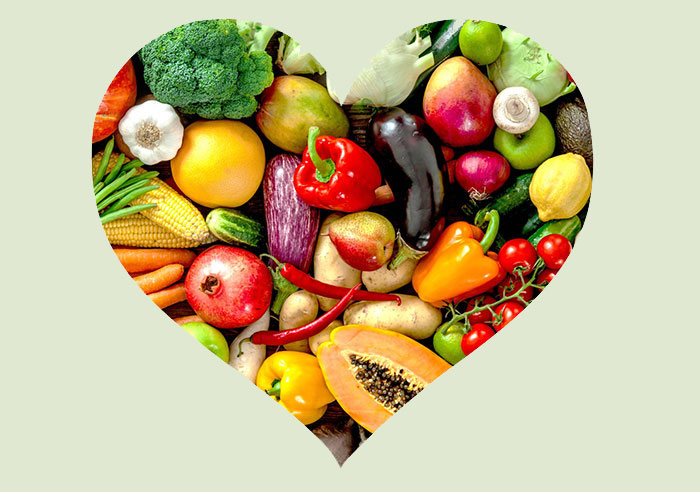
Other Healthy Diet Tips
While we recognize that individual goals and diet preferences (IE: vegan, vegetarian, paleo, etc) may differ from person to person, there are some general guidelines to follow for increasing your own "nutrition potential."
- Digestion - To begin, it is important to first optimize digestive functions so
that the food we consume and nutrients we take in can be properly assimilated and nutritionally utilized. "It all starts with digestion" and if you are not digesting your
foods no matter how healthy they are, you are not absorbing
the nutrients you need to thrive. Therefore, tending to ways that improve digestive functions is key.
- Detoxification - Next, a cleansing process might be in order to help eliminate the build-up of undigested waste material, excess body fat as well as cellular toxins that inevitably accumulate over the course of our lives from food, air or water sources.
- Rebuilding - Lastly, it may now be appropriate to begin rebuilding the body from the ground up using certain superfoods and especially our list of tonifying adaptogens.
1) Improving Digestion
The efficient digestion of the foods we eat is paramount to a healthy
disease-free life. If we are not properly breaking down our foods and
sorting out various nutrients we are not receiving their benefits. In
other words, "you are not what you eat, you are what you digest and
absorb."
It is therefore imperative to get digestive capacities back on tract, especially if you are someone who experiences chronic flatulence, bloating, constipation, loose stools or any other symptoms associated with impaired functions in this arena.
In
addition, in order to get the complete transfer of the life-force energy
from the foods we eat, the proper ratio of gut microbiota is of
particular significance. For those who tend to experience frequent
gastrointestinal upset, there is also the high likelihood that
intestinal body ecology is off balance.
Top Ways to Improve Digestion
1) Increase dietary enzymes
- Supplement with digestive enzymes.
- Include foods like sauerkraut with meals.
- Eat more raw living vegetables, fruits and sprouts.
- Consume fresh pressed enzyme-rich raw juices.
2) Food Combining
Eat simple whole foods that adhere to better food combining guidelines.
- Fruit----Leafy Greens or chlorophyll rich foods
- Protein----Non-starchy vegetables and seaweeds
- Fats----Non-starchy vegetables and seaweeds
- Starchy vegetables----Non-starchy vegetables, fats, and seaweeds
- Grains----Seaweeds, fats, non-starchy vegetables
3) Consume Blended Foods
Blended foods, like smoothies, soups and shakes, are not only a convenient meal option for a busy schedule, but because the blending process essentially predigests the ingredients, they are also easier to assimilate and digest for an overburdened system. They likewise enable one to utilize many superfoods and teas in an easy to make energizing drink. Adding chia seeds and aloe vera gel to blended foods can be soothing to the mucous lining of the stomach and colon and helpful as a mild laxative.
4) Improving Digestive Fire
The use of various Ayurvedic spices and culinary herbs like ginger, turmeric, cinnamon, cumin or cayenne can additionally be helpful in normalizing digestive capacities and promoting regular bowel movements.
5) Avoid Overeating
It is important to eat foods in moderation, consuming just enough needed to meet the energy expended on any given day. Smaller meal portions are particularly recommended for those with extreme digestive issues.
6) Take a Probiotic Supplement
Although cultured foods offer beneficial bacteria like lactobacillus, taking a probiotic supplement is furthermore advised for those with gastrointestinal disorders or candida overgrowth.
2) Promoting the Detoxification Process
As long as we are living with a functioning liver, colon and kidneys,
the body is always in some state of detox, filtering out wastes and
toxins. This is what these organs are designed to do. However, an
accumulation of toxic substances can occur over time from unhealthy
lifestyle habits, dietary excess and/or environment pollutants we are
all invariably exposed to on a daily basis.
This toxic waste build-up can impair health and create a chronic condition of low to high grade toxemia that can cause disease and a variety of health-related issues, especially reducing cognitive functions as we age.
Detoxification
is a branch of alternative medicine that believes that when certain
foods are eliminated from the diet, the body is more effectively able to
pull out stored toxic substances from the cells and tissues.
Top Ways to Cleanse and Detox
1) Green Juicing
Freshly prepared juices made from chlorophyll-rich green leafy vegetables and low sugar fruits promote cleansing effects and help to alkalize the blood and carry out toxins. These can be incorporated into one's daily diet or used exclusively for a period of time.
2) Follow a Cleansing Diet
This is a raw vegan diet composed of raw or blended fruits, sprouts and vegetables, which excludes all salt, oil, fat, sugar and any condiments for a certain amount of time.
3) Cleansing Herbs and Superfoods
This list might include herbs like pau d'arco, dandelion root, milk thistle or superfood supplements such as chlorella, zeolite and MSM.
3) Rebuilding with Dietary Superfoods
The human body is an amazing design and often has the ability to restore health when given the opportunity to do so. A healthy diet plan can be a crucial step in this rebuilding phase. Now the body is ready to take in and utilize all the many building superfoods, tonics, antioxidant-rich super fruits and immune enhancing herbs.
This is
the phase at which you can develop and build the body systems over time
with superfoods that support long lasting health-enhancing effects.
Depending on one's current dietary practices or health issues, the foods one chooses to consume may vary considerably from one person to the next. At this level unique individualized diets are of significant relevance.
We
have listed many categorized options on the pages of this site to help
you to pick and select those most appropriate for your distinct
nutritional needs and health goals.
Superfoods to Assist the Rebuilding Process
This list of superfoods may include many of the tonic herbal adaptogens and mushrooms such as reishi, fo-ti, chaga, astragalus and ginseng, but may also involve antioxidant-rich super fruits or foods high in mineral content, like seaweeds or shilajit.
At this restorative phase many other superfoods including mucuna, lions mane or ginkgo as well as those high in omega fatty acids might be suitable for enhancing cognitive functions.
You will be surprised at how small changes, just one thing, can begin to improve your health for the better. All you need to do is keep taking steps in the general direction.
Keep well-informed and updated with our latest pages, DIY's and recipes on our Superfoods Blog or sign up for our Quarterly Ezine.
